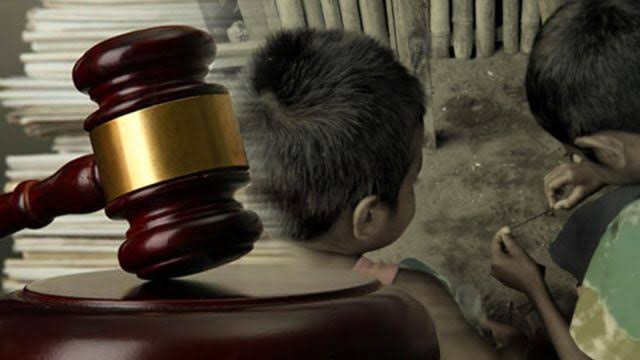Juvenile delinquency in India
Author :- Aritrika Das, a Student of Snehangshu kanta Acharya Institute of Law , kalyani University
Introduction –
Children are considered to be the greatest personal and national assets. Every guardians and society as a whole have a duty to raise children in a healthy socio-cultural environment so that they could become responsible and good citizens for next generation . It’s the duty of the State to provide equal opportunities for development to all children for their growth which would reduce inequality and ensure social justice.
Children are expected to be obedient, respectful,have virtues and good quality . However, so many childrens are commiting or are involved in minor and major crimes. Those are know as juvenile crime/delinquency.
Meaning –
Juvenile Delinquency is a term used to describe criminal behaviour committed by children typically below the age of 18 years. When a juvenile’s actions prove to be dangerous towards the society and for him, he may be called a juvenile delinquent.
It has become a growing concern in India, where the majority of the population is under the age of 25 years. In recent times juveniles were found to be involved in most heinous of the crimes such as murder and rape. It’s disturbing for individuals as well as society in large and can have long-term negative impact on families and society.
Juvenile Crimes in India-
Unfortunately nowadays Juveniles committing or getting involved in Crimes like theft, burglary, snatching which are less serious or crimes like robbery, dacoity, murder and rape etc which are relatively serious and these are on the rise in the whole country.
Juveniles between the age of 16-18 years are found to be more involved in serious crimes .According to the National Crime Records Bureau(2013) shows that the 43,506 crimes were registered against minors under the Indian Penal Code (IPC) and the Special Local Law (SLL) by juveniles, 28,830 had been committed by those between the ages of 16 -18.the statistics shows that the rate is increasing comparing to the previous years.
It's essential to understand the root causes of it, to prevent it from occurring.
Some most common associated causes are:
Family problems –
Problems like parental abuse, neglect, conflicts or Separation, lack of guidance, supervison , poverty etc can contribute criminal mentality among Juveniles.domestic violence, lack of love , attention and affection, the step-motherly/fatherly treatment all these are the vital causes to make a Juvenile either mentally unstable or numb towards life or violent to vent his anger, depression, stress all the pressures to his surroundings which won’t be good for families and society.
Peer pressure –
Teenager happen to follows their peers , even it’s illegal. Most of the time peers influences or forces the minors to do unlawful acts . Even if he know that it’s wrong the teen will still do it out of the pressure to be able to be the member of peers group or in some cases because of force and fear teens are unable to seek for help and do wrong things directed by peer.
Mental health issues –
Childrens can suffer from various mental illnesses such as depression, anxiety, ADHD which can lead to do wrong acts . Childhood trauma, family problems, bullying, harrasment, many more things cause one to be mentally ill. And because of India’s stigmatised society it becomes worse that make one do so many wrong things.
Poverty –
For India poverty plays a big role in the Juvenile crimes. Those from low-income families are more likely to involve in crimes . Lack of opportunities, comfort, luxury and also comparing themselves with a stable child etc are the reason to do unlawful acts. Those leads to theft, robbery, drug abuse etc .
Social media –
The another most common reason is sociel media. Everyone gets easy access to everything including criminal acts and gangs and also it influences childrens by many things that it’s nothing to commit crime. The comparison, urge to get things which others have or others are reasons why one commit crime.
Change in lifestyle-
The immaterial and changing patterns in people’s lifestyle make it arduous for juveniles to adjust and revamp their family relations.
Stand of Indian Constitution-
Article -15(3), 39(e,f), 45 and 47, forces to guaranteeing the necessities of security and fundamental human rights to a kid.
The Indian Penal Code-
The IPC Act, 1860 and Criminal Strategy Code, 1861 treated kids through different methodologies.these laws gave delinquents some special provisions regarding their Institutionalization and rehabilitation.
A large portion of the State Governments were still intensely shy of the declared objectives.So support and institutionalize the approach towards adolescent equity regarding the significant arrangements of the Constitution of India is needed.
Conclusion –
No one is born-criminal, the circumstances, society make him be so.family/ parental problems are the biggest matter in our society.It’s a serious issue which if not checked will get out of hand . The
Constitution is trying it’s best to it control it. Opportunities, education, proper aftercare , guidance,treatment etc are the essentials regarding the issue . rehabiliting a child as early as possible to integrate him back into society is the most considering matter.as It is easier to rebuild good children than to repair broken adult.




![Freedom of Speech in India [Indian Supreme court and Law of Sedition]](https://blogger.googleusercontent.com/img/a/AVvXsEiGLLUmLKq5Da6xDZplasOZHKRj-jOhWPkoeuy0_Eq757tUpOiHz-xooXwIlAjF0-hmBfi-TtMIv6on_sVgBXVq4wbWwnbsqLOcNX22S8C2aSq-ZuK3vn9wWAx8tXByYOBfwc0hs6b8RJV84YNFG2greouGKjup6g8kN-xVlchW33VHdSSmrhLC1BUEVbGp=w680)





